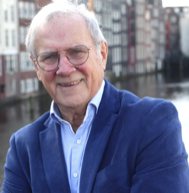Our commitment to the broader body of Christ as YWAM, wanting to promote unity and mission vision and also seeking accountability to the wider Church, should urge us to ask what the Spirit of God wants to say to us through the resources and reports of Lausanne 4.
What is of particular relevance for us in the unique and challenging mission field of a post-Christian, post-secular, multi-religious Europe which in many ways is out of sync with other parts of the world currently experiencing spiritual growth and life?
While in YWAM we have developed our own focal points in recent times – such as Oral Mother Tongue and Ending Bible Poverty – there are many other fresh challenges highlighted by church and mission leaders from around the world and summarised succinctly in the congress papers which we should also prayerfully reflect on in our leadership gatherings.
Past Lausanne gatherings have been moments of recalibration for the Body of Christ. In 1974, the original Lausanne brought a new balance into evangelical thinking concerning gospel proclamation and gospel demonstration, as well as awareness of the many unreached people groups. After attending Lausanne 2 in Manila in 1989, just as communism was collapsing, I was fired by the role YWAM could play in catalyising church planting movements across Europe. Lausanne 3 in Cape Town gave many a strong motivation to develop partnerships globally among churches and between mission movements; that the task was too big for any of us to tackle alone.

From some who were present in Seoul (I was not), the vibrancy of the life, dynamic and growth of the Body of Christ in all corners of the earth was a welcome leap forward from traditional western and white dominance. It fleshed out the picture of a church made up of all people, tongues, tribes and nations. Those present at YWAM Together in Manila earlier the same month (I was one) glimpsed this foretaste of heaven with worship expressed in many languages and cultures.
The term ‘polycentric mission’ was often used in Seoul, meaning that today missions involves everyone going from everywhere to everywhere. Which is something we do well in YWAM, and which was always Loren’s vision: mobilising everyone everywhere to go everywhere. Most of our most dynamic growth is happening in the majority world.
Resources:
We do well to study the several resources produced by Lausanne in various leadership groupings – alone, in our base leadership, national leadership and regional leadership settings. Let’s go through these documents and ask what points are relevant for us in our particular situation. These documents represent the distilled wisdom and experience of some leading mission thinkers and activists.
- Europe 2021: A missiological report by Jim Memory, Co-Regional Director for Lausanne Europe. Although now four years old, this report is still highly relevant and is the most comprehensive produced by Lausanne for our specific European context. With a study guide, it was produced for a Lausanne Europe event held in preparation of Lausanne 4. COVID forced this event to be held digitally. Jim is a personal friend and we have worked together in various capacities.
- A 516-page report on The State of the Great Commission, made available for download prior to the congress, isan impressively informative sourcebook for mission strategising and planning. The 100-page section of regional profiles offers insightful overviews around the world. For those of us engaged in the re-evangelisation of Europe, the ten pages devoted to the first continent to be completely Christianised and then substantially de-Christianised deserve close study. The authors of this section, Julia Garschagen, Luke Greenwood, Rolf Kjøde, Jim Memory, Usha Reifsnider and Janet Sewell, challenge us to reflect on six themes essential to mission in contemporary Europe: the meaning of trust/truth; the place of community; the challenges and opportunities of the digital world; creation care and climate justice; unprecedented demographic change; and a shift in morality affecting how the ‘good news’ of the gospel is interpreted by many Europeans.
- Over 150 authors contributed to the report, which includes another section of over 200 pages devoted to contemporary challenges and opportunities of sustainability, justice, equality, demographics, life and ministry in a digital age, gender and sexuality, artiifical intelligence and much more.
- Lastly, the Seoul Statement, which builds upon an the foundation of the Lausanne Covenant, the Manila Manifesto, and the Cape Town Commitment. In the introduction, the statement acknoledges that “during the last 50 years of evangelistic harvest, the global church has not adequately provided the teaching necessary to help new believers develop a truly biblical worldview. The church has often failed to nurture new believers to obey Christ’s call to radical discipleship at home, at school, in the church, in our neighbourhoods, and in the marketplace. It has also struggled to equip its leaders to respond to trending social values and to distortions of the gospel, which have threatened to erode the sincere faith of Christians and to destroy the unity and fellowship of the church of the Lord Jesus. Consequently, we are alarmed by the rise of false teachings and pseudo-Christian lifestyles, leading numerous believers away from the essential values of the gospel.”
We have to ask ourselves honestly how well we have equipped our own YWAM leaders to respond to trending social values and distortions of the gospel. How much of our own efforts have engaged with the fast-changing social landscape of the field where God has placed us? How many of our own courses really equip our people to make a difference in the public square where christianity is often seen to be part of the problem, and not the answer?
Let’s grasp these gifts from Lausanne with both hands, approaching them with open hearts and minds to learn about engaging effectively with those waiting to be told a better story.




